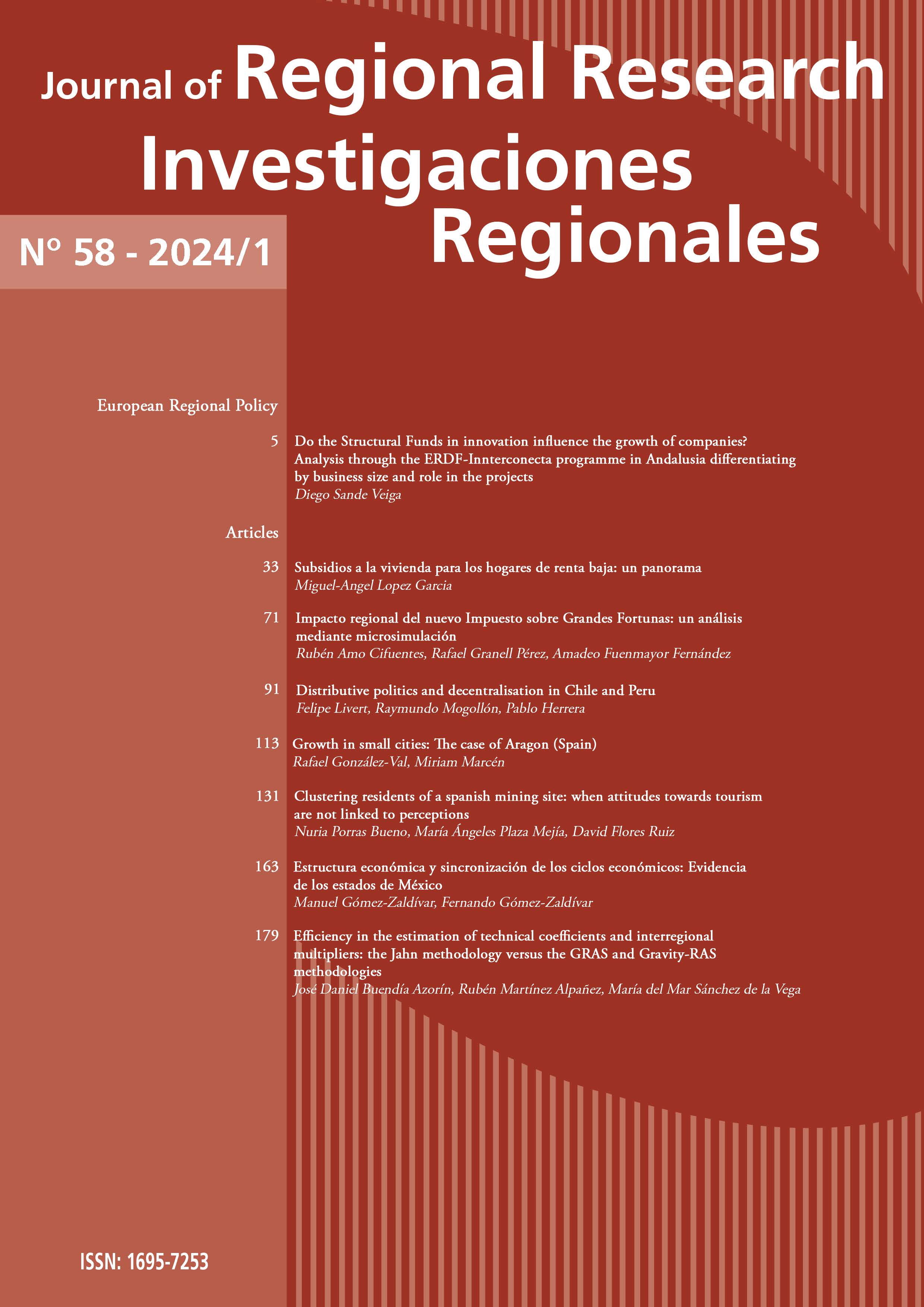Distributive politics and decentralisation in Chile and Peru
DOI:
https://doi.org/10.38191/iirr-jorr.24.004Keywords:
Distributive politics, Decentralisation, Pork-barrel, Chile, PeruAbstract
e paper presents evidence that decentralisation increases partisan influence in the allocation of nonprogrammatic resources. e model employs a panel data and fixed effects analysis using data corresponding to intergovernmental transfers from the national level, passing through the regional level and earmarked for investment for local governments in Chile (2008-2018) and Peru (2004 - 2013). e results indicate political influence on the distribution of resources. e distribution of resources is used tactically in both countries in presidential election years. e implementation of laws increasing political decentralisation in Chile and Peru increased the political bias in resource distribution. e results have policy implications and provide a comparative perspective on the development of fiscal institutions in both countries. In a continental scenario, in which Latin American countries are undergoing a strong decentralisation process, it is suggested to advance in reforms that increase transparency, accountability and citizen participation. In addition, it is advisable to limit non-programmatic allocations and provide stability in the distribution of public resources.
Downloads
Published
Issue
Section
License
Aquellos autores/as que tengan publicaciones con esta revista, aceptan los términos siguientes:
En el momento de aceptar la publicación de sus artículos en Investigaciones Regionales / Journal of Regional Research, los autores acceden a utilizar la licencia Creative Commons CC BY-NC. IIRR/JRR es una revista abierta que permite a los autores retener el máximo control sobre su trabajo. Los autores aceptarán utilizar la licencia Creative Commons Attribution-NonCommercial. Esta licencia permite a cualquier persona copiar y distribuir el artículo con propósitos no comerciales, siempre y cuando se atribuya adecuadamente la atribución del trabajo a la revista y a los autores.

